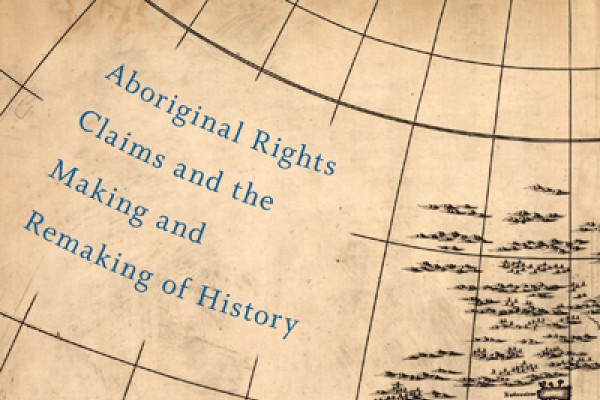An interview with Nino Ricci
Author of Pierre Elliott Trudeau
As part of Penguin Canada’s ongoing Extraordinary Canadians series—which just saw a handful of releases this April—Nino Ricci’s Pierre Elliott Trudeau marks the Montreal novelist’s first foray into non-fiction. “However mistaken some of Trudeau’s policies might have been, none the less there was this sense of grandeur to him and this sense of vision, and we’ve really lacked that since then,” said Ricci.
Trudeau still sticks out as an anomalous figure in Canadian politics, but “a number of historians have pointed out there are many things he did that were very much in line with mainstream liberalism. So it’s not as if he was a complete departure from what came before him. He was very continuous with Canadian tradition, even in his eccentricities.” For instance, said Ricci, former PM William MacKenzie King used to talk to his dog.
Dog whispering aside, “I do think a lot of leaders, consciously or unconsciously compare themselves with [Trudeau], and I think that comes across in [Brian] Mulroney’s memoir, where he clearly has a big grudge against Trudeau for robbing him of his moment in history.”
Trudeau’s exuberance, if not his policies, improved our sense of self-worth as Canadians, he says.
“Some people were deeply attached to him and overlooked the negative aspects of his legacy,” says Ricci. “Trudeau’s economic policy by the end of his reign was in great disarray and he left the country with a legacy of deficit spending that it took the next 20 years to get under control.” Despite his disagreements, Ricci believes “there was that aspect to him that seemed larger than politics. He seemed to stand for basic values, and seemed to have very little truck with the normal sleaziness of politics. He was a guy you could trust and who you would believe would just stand up for what he believed in.” Ricci chose not to interview too many of Trudeau’s confidants and policy makers, fearing he would bias himself in the process. “I had a couple of very interesting chats with Mark Lelonde,” he says. “He was someone who would spend a lot of time with Trudeau.” The two shared some of the same values, but they never seemed to develop a close personal relationship.
“That in itself was telling,” says Ricci. As testament to Trudeau’s ambiguity, Ricci’s opinion of him wavered throughout the writing process.
“There was a point at which I felt quite negative about him, particularly at the outset,” when new revelations from Trudeau’s archives revealed that he possessed a strong nationalist stance—at least in his early years—and even a few instances of anti-semitism in his writings.
“I began to wonder if he wasn’t just very Machiavellian, someone who secretly wanted power all along and just subscribed to whatever the current hot ideology of the day was to get it.”
That view of Trudeau didn’t really pan out, says Ricci, as “the more research I did the more complex he seemed and the more it seemed that he really did have a core to him of real values and of a real search for the truth of things.
“He will certainly keep coming up in the history books,” says Ricci. “But I think he will always have a very special place for the people who lived in his era that will be hard for future generations to recapture. I guess that was part of the idea behind this Penguin series: to try and keep these people in the public eye and to give people a sense of the important figures in their past.”










